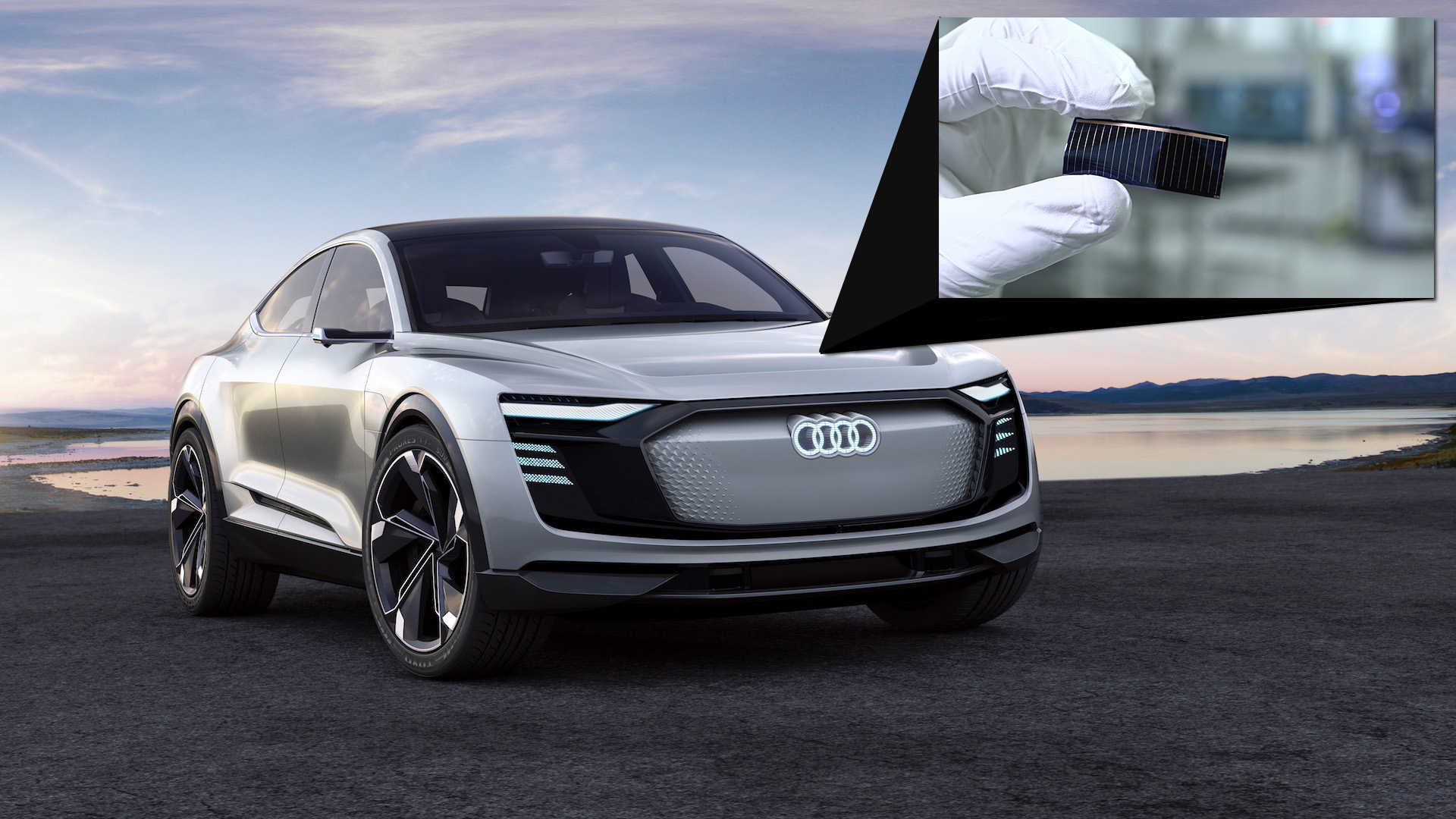

After watching the grid suffer while families traveled across the U.S. for the solar eclipse, a well-known problem became more apparent: there aren’t enough chargers to sustain the amount of charging required by the increasing number of electric vehicles on the road. Volkswagen’s luxury brand, Audi, has reportedly announced their intent to work with a Chinese solar manufacturer to produce an interesting charging concept for their new EVs: solar cells integrated into the car’s glass.
The German automaker will work with a solar cell manufacturer Alta Devices to embed solar cells into the glass that will be placed in a panoramic roof. This concept, which is expected to be installable on a test vehicle by end-of-year 2017, has the possibility of reaching full-scale development on a future Audi model which would be released alongside its E-Tron lineup.
Tesla CEO Elon Musk has gone on record to say that this type of model is not sustainable for charging cars (though is suitable for charging car chargers) and Audi seems to think that he’s right. Current cells simply aren’t efficient enough, given their size, to charge a vehicle to sustain long distance or fast charging needs. Fortunately, Audi won’t be targeting the powertrain as its reason to incorporate solar charging into its vehicles. It’s likely that the charging will provide energy used to supplement the output of electric used to run accessories like the air conditioning, headlights, and other items that suck power away from the wheels. A lower charge for a lower draw.
A concept such as this makes a great deal of sense, especially considering that Volkswagen has decided to shift a great deal of its focus towards EVs for both itself and subsidiaries, Audi included. The two brands are planning to release at least eight fully electric cars (five for Volkswagen and three for Audi) by 2022, a huge commitment in the form of alternative fuel. Eventually, Audi would like to develop cells which would also provide sufficient charge to its drivetrain. Dr. Bernd Martens, a member of Audi’s Board of Management, stated that powering “would be a milestone along the way to achieving sustainable, emission-free mobility”
None of this shift comes at a low cost either. In fact, Audi has recently had to cut costs by $12 billion over the next five years in order to fund their shift to electric. Part of development costs will be shaved off thanks to Volkswagen’s MEB modular electric platform which will share components between Audi, Porsche, and Volkswagen branded vehicles. If successful, this could help to lead to an even more energy efficient affordable EV.